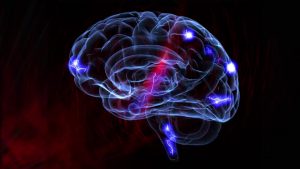
It’s their fault. They made that choice. Why should I help them. All they will do is spend the money on drugs. These are all things many of us have heard in person, on the radio, on tv or even a song. Addiction is a scary and complex thing. It’s hard on the addict, friends, and family. However, we often hear “it’s their fault. They made the choice” but did they really make the choice or was there something deep down out of their control?
Humans are pleasure seeking creatures which is triggered by neurotransmitters such as glutamate, dopamine, oxytocin and norepinephrine. Through these neurotransmitters, the reward-pleasure pathway incentivizing behavior. But these can also be triggered through the use of drugs such as opioids, cocaine and amphetamines. Therefore, the use of drugs is associated with a synthetic high with effects of euphoria, increased libido, enhanced sexual pleasure and more.
Cocaine and amphetamines increase the amount of dopamine in a neuron binding to receptors called D1. A cascade of events occurs, but the most important is the increase in two transcription factors, CREB and FOS-B. This increase in transcription factor causes more proteins to be produced than normal and affects the neural connections within the brain. Now, understanding slightly better what happens deep in the brain. So, is addiction within a person’s control?
factor causes more proteins to be produced than normal and affects the neural connections within the brain. Now, understanding slightly better what happens deep in the brain. So, is addiction within a person’s control?
It depends. Yes, there is the choice to take a drug but after that initial taste. However, many can’t stop because their brain is telling them they cannot function without it. Caffeine is an addiction on a smaller scale. When you have caffeine every morning and afternoon and then decide to quit cold turkey. You experience headaches, drowsiness, changes in mood and more. This is because you rapidly took something away your brain depended on. This, but on a more extreme is what happens to addicts.
A recent study published explained one possible treatment of addiction is through giving oxytocin. This is a neuro stimulus that many of us receive through our mothers. It provides a sense of well-being and connectedness. But, if someone was deprived and doesn’t produce enough oxytocin. Is it their fault that they unintentionally crave this sense of well-being/connectedness and the only similar feeling is through drugs? It is not only nurturing that impacts addicts but also nature. Some people are more predisposed than others genetically. There are many other factors that should be considered before directly blaming and shaming the addict. This way of thought will help eliminate the negative connotation of addiction and possibly help develop a better way of preventing and helping drug addicts.